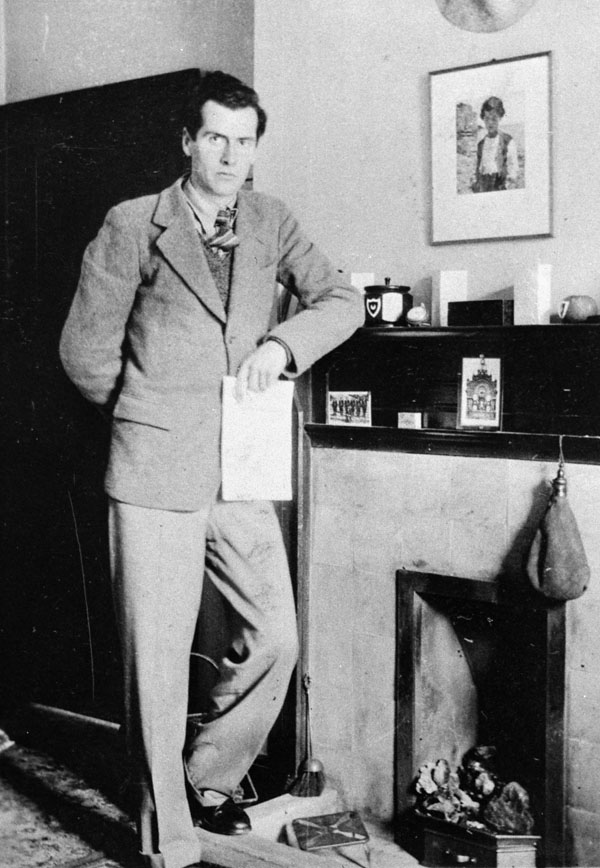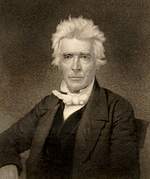|
Moral Panic
A moral panic is a widespread feeling of fear, often an irrational one, that some evil person or thing threatens the values, interests, or well-being of a community or society. It is "the process of arousing social concern over an issue", usually perpetuated by moral entrepreneurs and the mass media, and exacerbated by politicians and lawmakers. Stanley Cohen, who developed the term, states that moral panic happens when "a condition, episode, person or group of persons emerges to become defined as a threat to societal values and interests". While the issues identified may be real, the claims "exaggerate the seriousness, extent, typicality and/or inevitability of harm". Moral panics are now studied in sociology and criminology, media studies, and cultural studies. Examples of moral panic include the belief in widespread abduction of children by predatory pedophiles; belief in ritual abuse of women and children by Satanic cults; and concerns over the effects of music lyrics ... [...More Info...] [...Related Items...] OR: [Wikipedia] [Google] [Baidu] |
Satanic Ritual Abuse
The Satanic panic is a moral panic consisting of over 12,000 unsubstantiated cases of Satanic ritual abuse (SRA, sometimes known as ritual abuse, ritualistic abuse, organized abuse, or sadistic ritual abuse) starting in the United States in the 1980s, spreading throughout many parts of the world by the late 1990s, and persisting today. The panic originated in 1980 with the publication of ''Michelle Remembers'', a book co-written by Canadian psychiatrist Lawrence Pazder and his patient (and future wife), Michelle Smith, which used the discredited practice of recovered-memory therapy to make sweeping lurid claims about satanic ritual abuse involving Smith. The allegations which afterwards arose throughout much of the United States involved reports of physical and sexual abuse of people in the context of occult or Satanic rituals. In its most extreme form, allegations involve a conspiracy of a global Satanic cult that includes the wealthy and powerful world elite in which children ... [...More Info...] [...Related Items...] OR: [Wikipedia] [Google] [Baidu] |
Social Theory
Social theories are analytical frameworks, or paradigms, that are used to study and interpret social phenomena.Seidman, S., 2016. Contested knowledge: Social theory today. John Wiley & Sons. A tool used by social scientists, social theories relate to historical debates over the validity and reliability of different methodologies (e.g. positivism and antipositivism), the primacy of either structure or agency, as well as the relationship between contingency and necessity. Social theory in an informal nature, or authorship based outside of academic social and political science, may be referred to as "social criticism" or "social commentary", or "cultural criticism" and may be associated both with formal cultural and literary scholarship, as well as other non-academic or journalistic forms of writing. Definitions Social theory by definition is used to make distinctions and generalizations among different types of societies, and to analyze modernity as it has emerged in the pas ... [...More Info...] [...Related Items...] OR: [Wikipedia] [Google] [Baidu] |
Understanding Media
''Understanding Media: The Extensions of Man'' is a 1964 book by Marshall McLuhan, in which the author proposes that the media, not the content that they carry, should be the focus of study. He suggests that the medium affects the society in which it plays a role mainly by the characteristics of the medium rather than the content. The book is considered a pioneering study in media theory. McLuhan pointed to the light bulb as an example. A light bulb does not have content in the way that a newspaper has articles or a television has programs, yet it is a medium that has a social effect; that is, a light bulb enables people to create spaces during nighttime that would otherwise be enveloped by darkness. He describes the light bulb as a medium without any content. McLuhan states that "a light bulb creates an environment by its mere presence." More controversially, he postulated that content had little effect on society—in other words, it did not matter if television broadcasts ch ... [...More Info...] [...Related Items...] OR: [Wikipedia] [Google] [Baidu] |
Marshall McLuhan
Herbert Marshall McLuhan (July 21, 1911 – December 31, 1980) was a Canadian philosopher whose work is among the cornerstones of the study of media theory. He studied at the University of Manitoba and the University of Cambridge. He began his teaching career as a professor of English at several universities in the United States and Canada before moving to the University of Toronto in 1946, where he remained for the rest of his life. McLuhan coined the expression "the medium is the message" in the first chapter in his ''Understanding Media: The Extensions of Man'' and the term ''global village.'' He even predicted the World Wide Web almost 30 years before it was invented. He was a fixture in media discourse in the late 1960s, though his influence began to wane in the early 1970s. In the years following his death, he continued to be a controversial figure in academic circles. However, with the arrival of the Internet and the World Wide Web, interest was renewed in his work and ... [...More Info...] [...Related Items...] OR: [Wikipedia] [Google] [Baidu] |
Cholera
Cholera is an infection of the small intestine by some strains of the bacterium ''Vibrio cholerae''. Symptoms may range from none, to mild, to severe. The classic symptom is large amounts of watery diarrhea that lasts a few days. Vomiting and muscle cramps may also occur. Diarrhea can be so severe that it leads within hours to severe dehydration and electrolyte imbalance. This may result in sunken eyes, cold skin, decreased skin elasticity, and wrinkling of the hands and feet. Dehydration can cause the skin to turn bluish. Symptoms start two hours to five days after exposure. Cholera is caused by a number of types of ''Vibrio cholerae'', with some types producing more severe disease than others. It is spread mostly by unsafe water and unsafe food that has been contaminated with human feces containing the bacteria. Undercooked shellfish is a common source. Humans are the only known host for the bacteria. Risk factors for the disease include poor sanitation, not enough clea ... [...More Info...] [...Related Items...] OR: [Wikipedia] [Google] [Baidu] |
Sunderland
Sunderland () is a port city in Tyne and Wear, England. It is the City of Sunderland's administrative centre and in the Historic counties of England, historic county of County of Durham, Durham. The city is from Newcastle-upon-Tyne and is on the River Wear's mouth to the North Sea. The river also flows through Durham, England, Durham roughly south-west of Sunderland City Centre. It is the only other city in the county and the second largest settlement in the North East England, North East after Newcastle upon Tyne. Locals from the city are sometimes known as Mackems. The term originated as recently as the early 1980s; its use and acceptance by residents, particularly among the older generations, is not universal. At one time, ships built on the Wear were called "Jamies", in contrast with those Tyneside, from the Tyne, which were known as "Geordies", although in the case of "Jamie" it is not known whether this was ever extended to people. There were three original settlements ... [...More Info...] [...Related Items...] OR: [Wikipedia] [Google] [Baidu] |
Social Science
Social science is one of the branches of science, devoted to the study of societies and the relationships among individuals within those societies. The term was formerly used to refer to the field of sociology, the original "science of society", established in the 19th century. In addition to sociology, it now encompasses a wide array of academic disciplines, including anthropology, archaeology, economics, human geography, linguistics, management science, communication science and political science. Positivist social scientists use methods resembling those of the natural sciences as tools for understanding society, and so define science in its stricter modern sense. Interpretivist social scientists, by contrast, may use social critique or symbolic interpretation rather than constructing empirically falsifiable theories, and thus treat science in its broader sense. In modern academic practice, researchers are often eclectic, using multiple methodologies (for instance, by ... [...More Info...] [...Related Items...] OR: [Wikipedia] [Google] [Baidu] |
The Princeton Theological Review
''The Princeton Theological Review'' is an annual academic journal published by students of Princeton Theological Seminary. It was first published with the title ''Biblical Repertory'' in 1825 by the Princeton Seminary graduate and professor, Charles Hodge. The name was changed to ''Biblical Repertory and Theological Review'' in 1829, ''Biblical Repertory and Princeton Review'' in 1837, ''Presbyterian Quarterly and Princeton Review'' in 1872, ''The Princeton Review'' in 1878, ''The Presbyterian Review'' in 1880, ''The New Princeton Review'' in 1886, ''The Presbyterian and Reformed Review'' in 1890, and finally ''Princeton Theological Review'' in 1903. In 1929 the trustees of Princeton Theological Seminary discontinued its subsidization. It was revived in the mid 1990s as ''The Princeton Theological Review''.''Princeton Theological Seminary: A Narrative History, 1812-1992''. William K. Selden. Princeton University Press Princeton University Press is an independent publisher with cl ... [...More Info...] [...Related Items...] OR: [Wikipedia] [Google] [Baidu] |
Millennial Harbinger
The ''Millennial Harbinger'' was a religious magazine established by the early Restoration Movement leader Alexander Campbell in 1830.Douglas A. Foster and Anthony L. Dunnavant, ''The Encyclopedia of the Stone-Campbell Movement: Christian Church (Disciples of Christ), Christian Churches/Churches of Christ, Churches of Christ'', Wm. B. Eerdmans Publishing, 2004, , , 854 pages, entry on ''Millennial Harbinger, The'', pp. 517-518Douglas A. Foster and Anthony L. Dunnavant, ''The Encyclopedia of the Stone-Campbell Movement: Christian Church (Disciples of Christ), Christian Churches/Churches of Christ, Churches of Christ'', Wm. B. Eerdmans Publishing, 2004, , , 854 pages, entry on ''Campbell, Alexander'', pp. 129-130 Campbell viewed the magazine as an important vehicle for promoting the religious reforms that he believed would help usher in the millennium. History Campbell began publishing the ''Harbinger'' on January 1, 1830, and it soon became a leading forum for the Restoration Move ... [...More Info...] [...Related Items...] OR: [Wikipedia] [Google] [Baidu] |
Mass Hysteria
Mass psychogenic illness (MPI), also called mass sociogenic illness, mass psychogenic disorder, epidemic hysteria, or mass hysteria, involves the spread of illness symptoms through a population where there is no infectious agent responsible for contagion. It is the rapid spread of illness signs and symptoms affecting members of a cohesive group, originating from a nervous system disturbance involving excitation, loss, or alteration of function, whereby physical complaints that are exhibited unconsciously have no corresponding organic causes. Causes MPI is distinct from other types of collective delusions by involving physical symptoms. It is not well understood and its causes are uncertain. Qualities of MPI outbreaks often include: *symptoms that have no plausible organic basis; *symptoms that are transient and benign; *symptoms with rapid onset and recovery; *occurrence in a segregated group; *the presence of extraordinary anxiety; *symptoms that are spread via sight, sound or ... [...More Info...] [...Related Items...] OR: [Wikipedia] [Google] [Baidu] |
Terrorism
Terrorism, in its broadest sense, is the use of criminal violence to provoke a state of terror or fear, mostly with the intention to achieve political or religious aims. The term is used in this regard primarily to refer to intentional violence during peacetime or in the context of war against non-combatants (mostly civilians and neutral country, neutral military personnel). The terms "terrorist" and "terrorism" originated during the French Revolution of the late 18th century but became widely used internationally and gained worldwide attention in the 1970s during The Troubles, the Troubles in Northern Ireland, the Basque conflict, and the Israeli–Palestinian conflict. The increased use of suicide attacks from the 1980s onwards was typified by the 2001 September 11 attacks in the United States. There are various different definitions of terrorism, with no universal agreement about it. Terrorism is a Loaded language, charged term. It is often used with the connotation of some ... [...More Info...] [...Related Items...] OR: [Wikipedia] [Google] [Baidu] |








